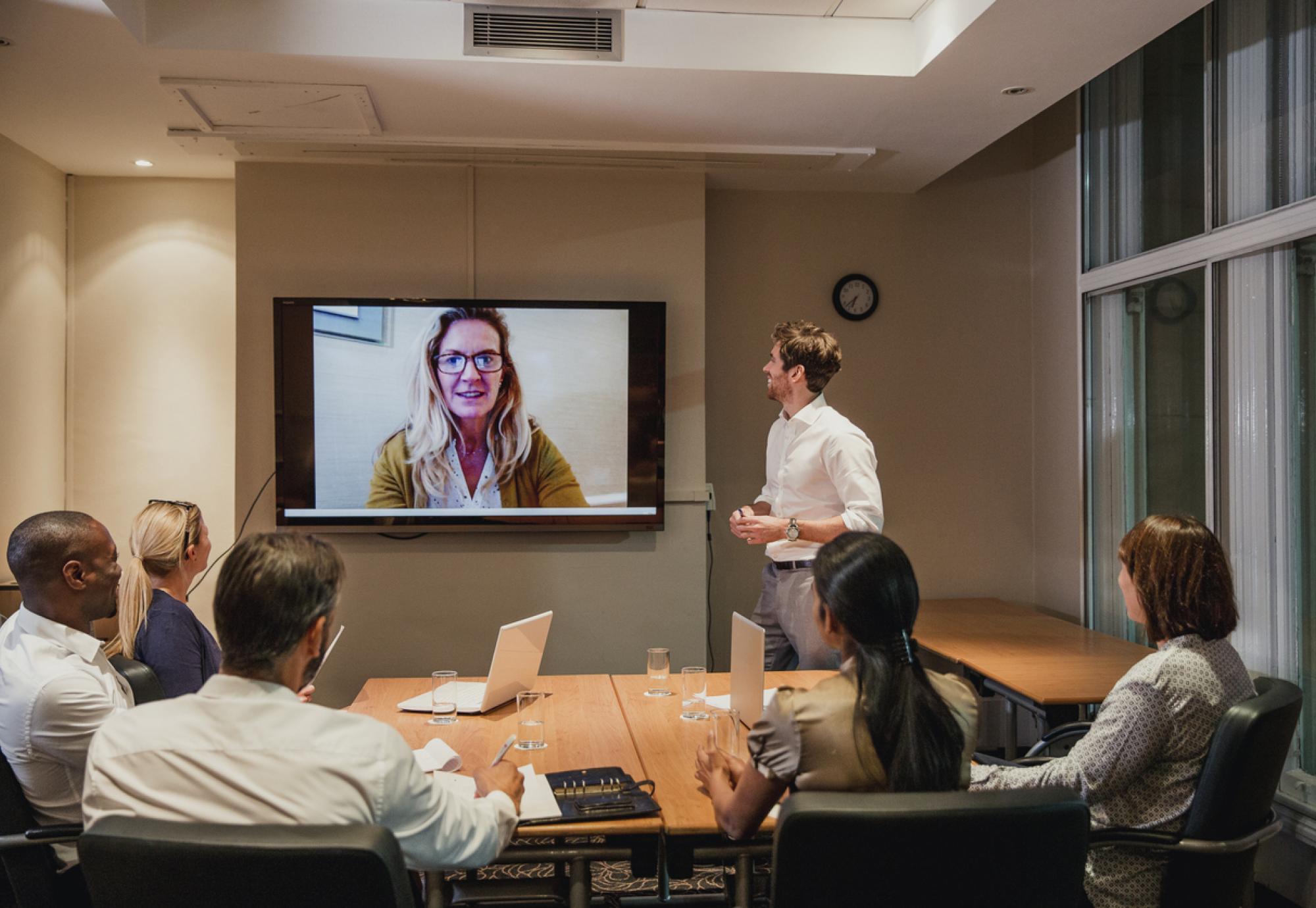DisplayNote takes a look at the changes meetings have undergone in response to the pandemic and why digital inclusion in the meeting space is so essential for the NHS.
Digital inclusion may not be something that automatically springs to mind when you think of NHS staff well-being, but in light of the events of the last three years, good digital workplace infrastructure has never been so essential. As a nation, almost 50% of the UK workforce went into remote working towards the end of March, digital tools became essential for carrying out normal operations. Reports indicated a 48% increase in the use of video conferencing tools, with 29% of workers using them for the very first time. And despite the easing of social restrictions and a return to more familiar ways of working in the last 12 months, many NHS staff continue to be placed on rotational work patterns to reduce mass infection and ensure continued service. This means that video calls and digital work tools are still very much a part of daily life for many NHS staff members.
The unplanned hybrid working experiment also yielded an overwhelmingly positive response from many workers, which prompted a global shift towards a blended model of working. Organisations have acknowledged the impact it can have on employee well-being and staff attraction and retention. As a result, the NHS launched a new People Plan initiative at the end of 2021, which centres around the mission statement of: “More people, working differently, in a compassionate and inclusive culture”. A more flexible, hybrid approach to working is, therefore, core to this.
Although hybrid working offers many benefits in the form of flexibility, increased participation, and inclusion, it also introduces the issue of digital exclusion. Hybrid working is highly dependent on the use of digital workplace tools and video calls, so we’ve, therefore, entered a work climate that is increasingly hostile for those less comfortable with technology.
Digital exclusion is broadly defined as a section of the population having continued unequal access and capacity to use Information and Communications Technologies (ICT) that are essential to fully participate in society (Schejter, 2015; Warren, 2007). Simon Parkinson, chief executive of the WEA (a UK charity providing adult education), explains that 11.5 million adults in the UK lack basic digital skills, which translates to a £64 billion loss in GDP in skill gap each year. Not only does digital exclusion restrict access to jobs and education, but it is also linked to poor health and lower life expectancy, increased loneliness and social isolation, and paying more for essentials.
Even for those not directly involved in technical roles, staff often need to use meeting rooms for presenting or holding video calls. If staff are unfamiliar with organising a hybrid meeting and using the technology in the room, they’re more likely to run into issues with setting up and launching apps, which can be both embarrassing and time-consuming for them and the attendees. This can lead to an unwillingness to engage in meetings, a lack of confidence in hosting video calls and presenting to other team members, and general exclusion from the meeting space.
Research has actually indicated that around a quarter (26%) of workers surveyed feel challenged or unable to cope with advanced technology, with only about a third (34%) saying they feel comfortable.
The UK digital strategy report suggests that there are a number of important barriers, and more than one may affect individuals at any one time. These barriers are access, skills, confidence, and motivation. The question, then, is, how do you address these knowledge gaps, and what steps can you take to make meeting room technology more accessible?
One approach that is proving popular in NHS organizations is DisplayNote’s call and app Launcher which acts as a smart interface for the meeting room screen giving room users easy access to their scheduled video calls, apps, and URLs - reducing meeting setup time and IT support requests. Here’s how DisplayNote Launcher is making meeting spaces more accessible for users of all digital abilities:
Launch video calls with ease
With DisplayNote Launcher software installed on your meeting room screens, users can easily launch scheduled calls, regardless of what platform it’s on. Launcher integrates with the room calendar, meaning all your scheduled calls are pre-loaded on the screen and ready to launch with a few simple taps. Plus, meeting room console support means calls can also be launched from your seat if you have a console on the meeting room table.
Gives users of all abilities confidence with meeting room tech
Launcher’s interface replicates the type of user experience staff are accustomed to on their home devices. Essential apps, room calendars, and URLs can be launched with a touch or click of a button. This makes the meeting room accessible and inclusive for staff of all tech levels - empowering everyone to be able to carry out the tasks they need to in the meeting space.
Standardises meeting room set-up
The Launcher homescreen can be customised with essential tools and apps. These settings can then be exported to every meeting space in the organisation and PIN-protected. This creates a consistent and familiar experience in every meeting space, meaning users can enter any room, find the tools they need, and start their video call or meeting.
"With Launcher installed, we are reassured that every screen is exactly the same no matter which station you go to; the same apps and icons are always there." - Mark Scoales, Digital Services Manager, Greater Manchester Combined Authority (GMCA).


















